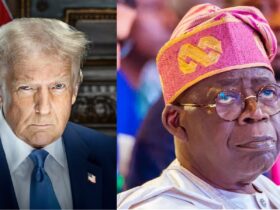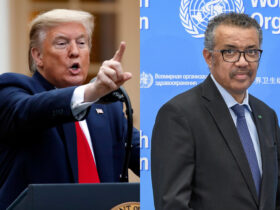
At the United Nations General Assembly held on Tuesday, 15 new countries were elected to serve on the Human Rights Council, which saw the supposedly “Giant of Africa” miss out after only attracting three (3) votes.
The UN elected 15 new countries to serve on the Human Rights Council. However, African countries like Burundi, Malawi, and Côte d’Ivoire secured seats with a big margin of difference right above Nigeria.
Malawi topped the voting list for African Nations after attracting 182 votes, followed by Cote d’Ivoire with 181 votes and Ghana with 179 votes.
Burundi followed Ghana with 168 votes. Nigeria got the fewest and poorest votes in the Assembly,with just three votes.
Indonesia received 186 votes in Asia and the Pacific, followed by Kuwait (183), Japan (175), and China (154).
Bulgaria won 160 votes in Eastern Europe, followed by Albania (123) and Russia (83). The re-election of Russia to the Human Rights Council was an ongoing process after it left the body on April 7, 2022.
Cuba received 146 votes in Latin America and the Caribbean, followed by Brazil (144), the Dominican Republic (137), and Peru (108). The Dominican Republic has never before been elected to the Human Rights Council.
The Netherlands received 169 votes in Western Europe and other regions, and France received 153.
On January 1, 2024, the newly admitted nations will join Algeria, Argentina, Bangladesh, Belgium, Benin, Cameroon, Chile, Costa Rica, Eritrea, Finland, Gambia, Georgia, Germany, Honduras, India, Kazakhstan, Kyrgyzstan, Lithuania, Luxembourg, Malaysia, the Maldives, Montenegro, Morocco, Paraguay, Qatar, Romania, Somalia, South Africa, Sudan, the United Arab Emirates, the United States of America, and Viet Nam.
The primary UN organization for human rights, the Human Rights Council, is in charge of defending and developing universal freedoms.
It was established in 2006, and the majority of the General Assembly’s members chose its 47 member states in a secret vote.
Its seats are allocated among regional groups of states as follows: Africa (13); Asia-Pacific (13); Eastern Europe (6); Latin America and the Caribbean (8); and Western Europe and others (7). This ensures an equitable geographical distribution.








Leave a Reply